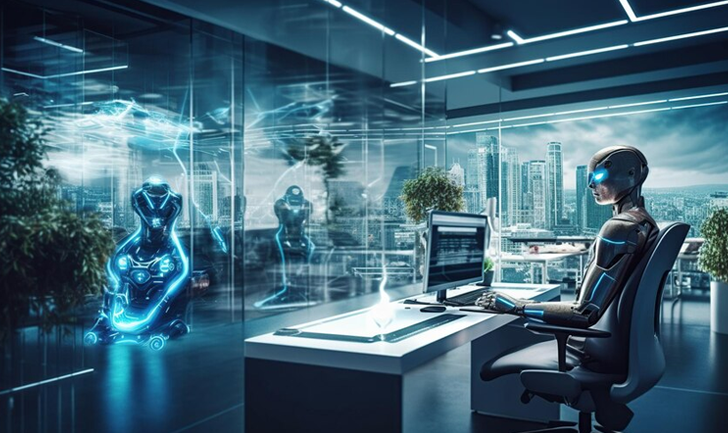THE IMPACT OF ARTIFICIAL INTELLIGENCE ON HR AND RECRUITMENT

The area of Human Resources and recruiting is not an exception to the inevitable integration of Artificial Intelligence (AI) into numerous businesses in today's tech-driven, fast-paced world. Not only has artificial intelligence revolutionized the way businesses run, but it has also had a big impact on hiring. Together, we will examine the influence of AI on recruiting and HR, as we dig into this exciting field.
1. Streamlined Screening and Selection:
The automation of the candidate screening and selection process is one of the most obvious effects of AI in HR and recruiting. HR personnel may quickly evaluate a large number of resumes and select the most competent applicants with the use of AI-powered solutions. By matching candidates' abilities, experience, and credentials with job criteria, these technologies help streamline the recruiting process and lessen the influence of human bias.
2. Improved applicant Experience:
By using chatbots and virtual assistants throughout the first phases of hiring, artificial intelligence has enhanced the applicant experience. These chatbots can set up interviews, respond to inquiries from candidates right away, and give insightful corporate information, making the application process more interesting and educational for prospects.
3. Predictive Analytics for Talent Management:
HR departments may help with strategic talent management by using AI-driven analytics to determine which candidates have a higher chance of succeeding in a certain job. This helps in finding future leaders and filling up skill shortages within the company in addition to making better hiring selections.
4. Less Discrimination and prejudice:
AI algorithms are made to evaluate candidates based on objective standards, which helps to lessen unconscious prejudice throughout the recruiting process. This encourages inclusivity and diversity, making the workforce more representative.
5. Continuous Learning and Development:
AI systems may provide workers individualized programs for their ongoing education and training. AI may provide recommendations for pertinent training programs, courses, and career progression possibilities based on an employee's abilities and performance, keeping the workforce current and flexible.
6. Quicker Time-to-Fill and Cost Reduction:
HR organizations may drastically cut down on the amount of time it takes to fill job openings by automating repetitive operations. Because less human interaction is needed throughout the hiring process, this saves money.
7. Effective Employee Onboarding:
AI may help with onboarding by automating administrative duties like scheduling orientations and processing documents. This frees up HR personnel to concentrate on giving onboarding clients a more unique and interesting experience.
Even while AI has greatly benefited HR and hiring, it's important to keep in mind that AI should supplement human judgment, not take its place. AI cannot replace the human touch when it comes to duties like evaluating emotional intelligence and cultural fit.
In conclusion, AI is having a revolutionary effect on hiring and HR. It has completely changed how businesses find, choose, and handle talent. HR professionals need to accept and adjust to AI's ongoing evolution in order to remain competitive in the dynamic labor market. The cooperation between